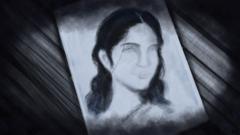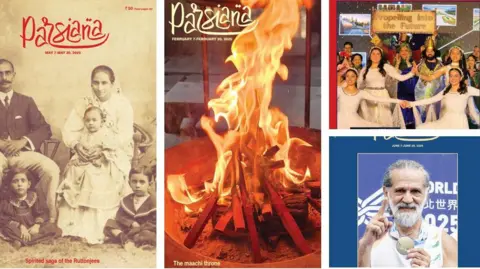In the early 20th century, a time when women's roles in film were largely taboo, one woman rose to defy norms in Kerala, India. PK Rosy, born Rajamma, made history as the first female lead in the burgeoning world of Malayalam cinema with the release of "Vigathakumaran" in the 1920s. Yet, instead of earning lasting recognition, her legacy has been largely forgotten, drowned under the weight of caste oppression and community backlash.
Rosy came from the Pulaya community, a marginalized caste considered part of the Dalit population, historically subjected to systemic oppression in India. The challenges she faced were immense, as noted by Malavika Binny, a history professor at Kannur University, who highlighted the brutal realities of caste discrimination that Rosy's community endured. Specifically, Rosy's ambitions clashed violently with societal norms, demonstrating not only her courage but the limitations imposed upon her due to her background.
With the support of her uncle, a theatre performer, Rosy broke into the entertainment industry, making a name for herself in local performances. Her path led her to director JC Daniel, who cast her in "Vigathakumaran," aware of the potential backlash her caste identity could provoke. Rosy's casting was revolutionary, however, the premiere night foretold the turmoil that awaited her. Despite her leading role, Rosy and her family were barred from attending the screening, a symbolic rejection that sparked outrage.
The film, featuring a scene of intimacy between Rosy’s character and the hero, provoked violent reactions from the audience, resulting in damaging consequences not only for the display but also for Rosy's future. She was forced to leave her community when her home was set on fire by an enraged mob. To avoid further persecution, she severed ties with her past and married an upper-caste man, transforming her identity to Rajammal and settling quietly in Nagercoil, Tamil Nadu.
In this new life, Rosy's past as PK Rosy faded away. Her children were conditioned by their father's caste stature, rejecting her Dalit heritage. Despite their disassociation, Rosy’s legacy began to reclaim its significance as Dalit filmmakers and activists brought her story back into the limelight. Notably, Tamil director Pa Ranjith launched a film festival in Rosy's honor, aiming to celebrate Dalit narratives in cinema.
Even as her story resurrects, the emotional scars of caste trauma remain poignant. Rosy’s experience underscores a painful reality where survival often necessitated the abandonment of identity and passion. Comments from Rosy’s nephew further suggest that reconciling her legacy with their upper-caste existence remains an intricate challenge.
As the conversation around caste, identity, and representation in the arts continues to evolve, the haunting memory of PK Rosy serves as a reminder of the struggles faced and the work still needed to ensure no voice goes unheard.




















